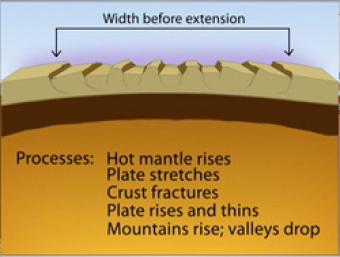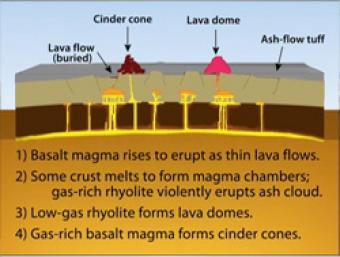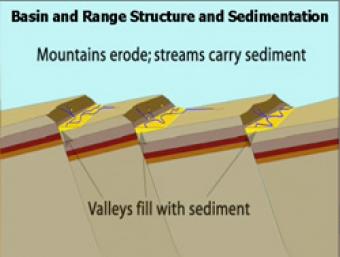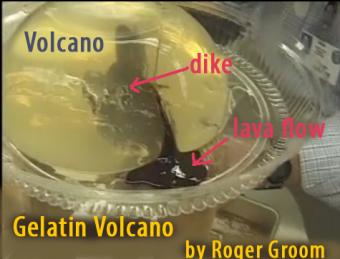This interactive map of the Basin-Range Province reveals information about the youngest volcanic features associated with the region.
The links above to other interactives and animations offers much detail about basin-range features.
VIEW the interactive in a separate tab, by clicking on "Open Resource" then scroll over named features. (Note some browsers lack the plugins for rollovers.)
IRIS may be discontinuing these interactive animations in 2020. This file is an HTML5 file that uses a browser to view.
Rolling over red-triangle "Active Volcanoes" buttons reveals:

Over most of the last 30 million years, movement of hot mantle beneath the region caused the surface to dome up and then partially collapse under its own weight, as it pulled apart. Currently, there is very little actual stretching going on, and the small amount is concentrated on the Western and Eastern edges of the Basin and Range.

During Basin & Range extension, the plates pull apart, the mantle rises and melts due to lower pressures near the surface. The style of eruption depends on how long the magma sits in the crust and undergoes processes such as crystallization and melting and assimilation of wall rock.

As extension and uplift occur, erosion and sedimentation happen simultaneously but at slower rates. As extension slows down, erosion and sedimentation can overcome mountain building.

Classroom demonstration using gelatin as a model for teaching magma injection into Earth's crust. The gelatin provides a see-through medium as an analogy for the crust.
We encourage the reuse and dissemination of the material on this site as long as attribution is retained. To this end the material on this site, unless otherwise noted, is offered under Creative Commons Attribution (CC BY 4.0) license